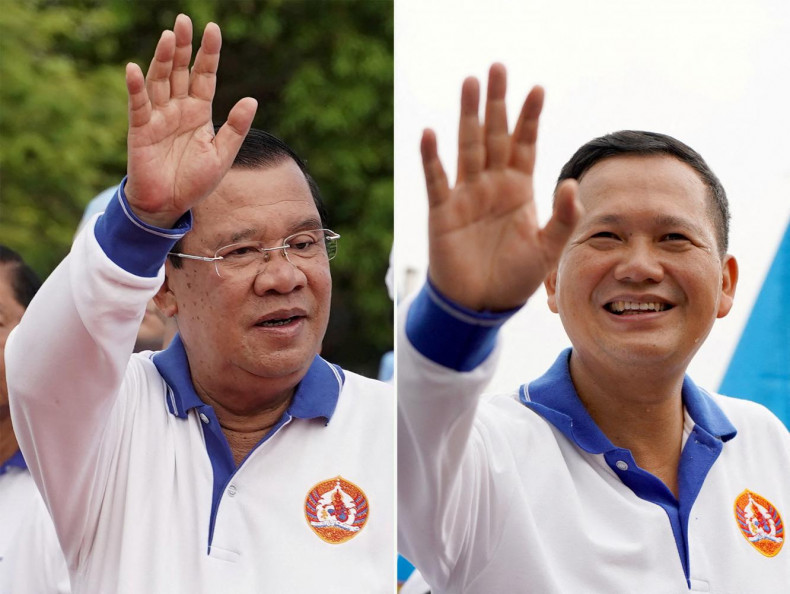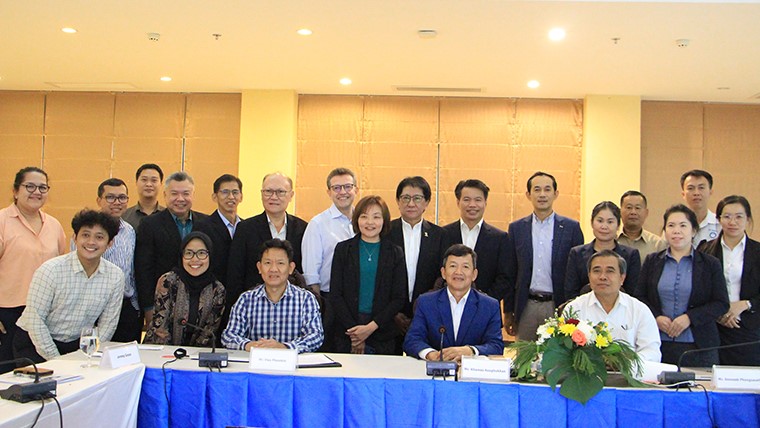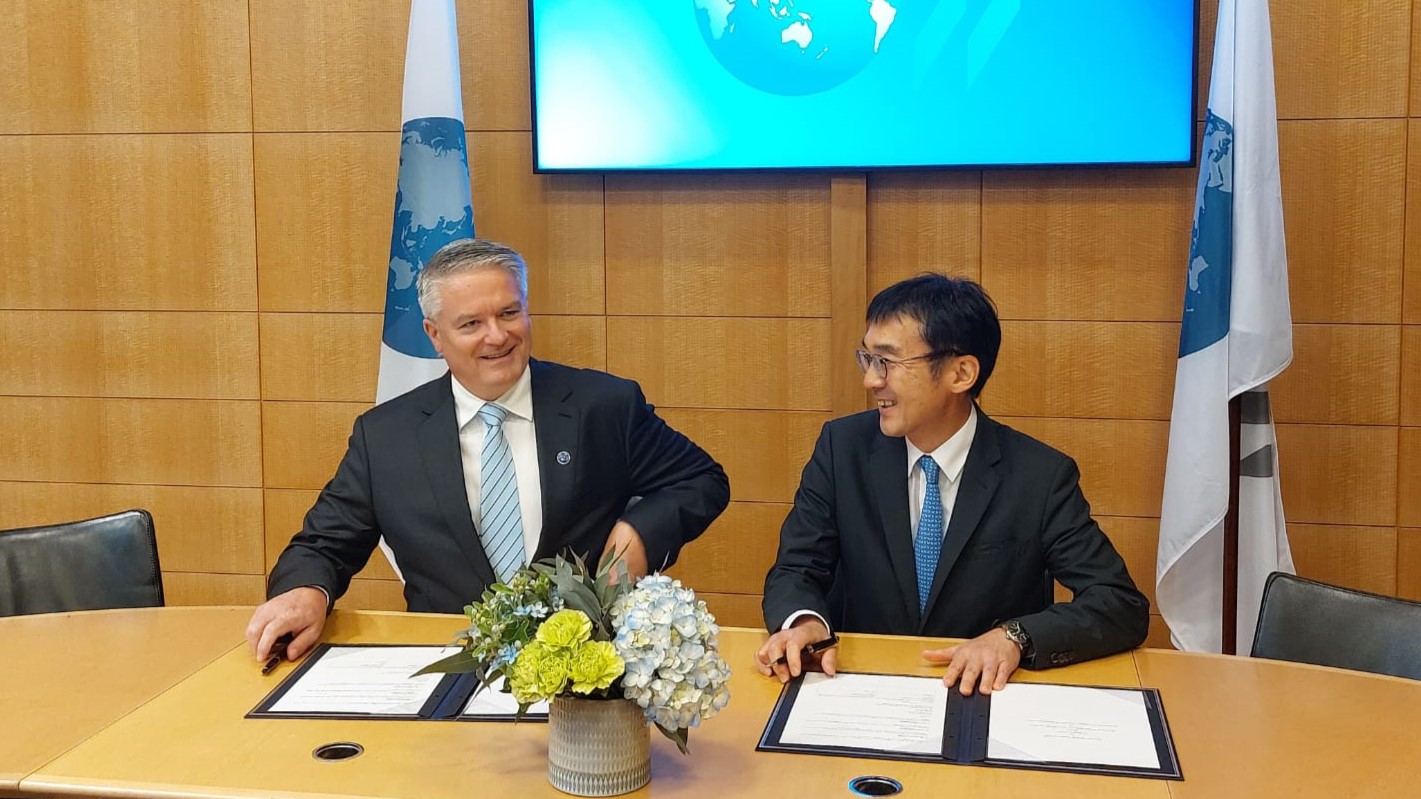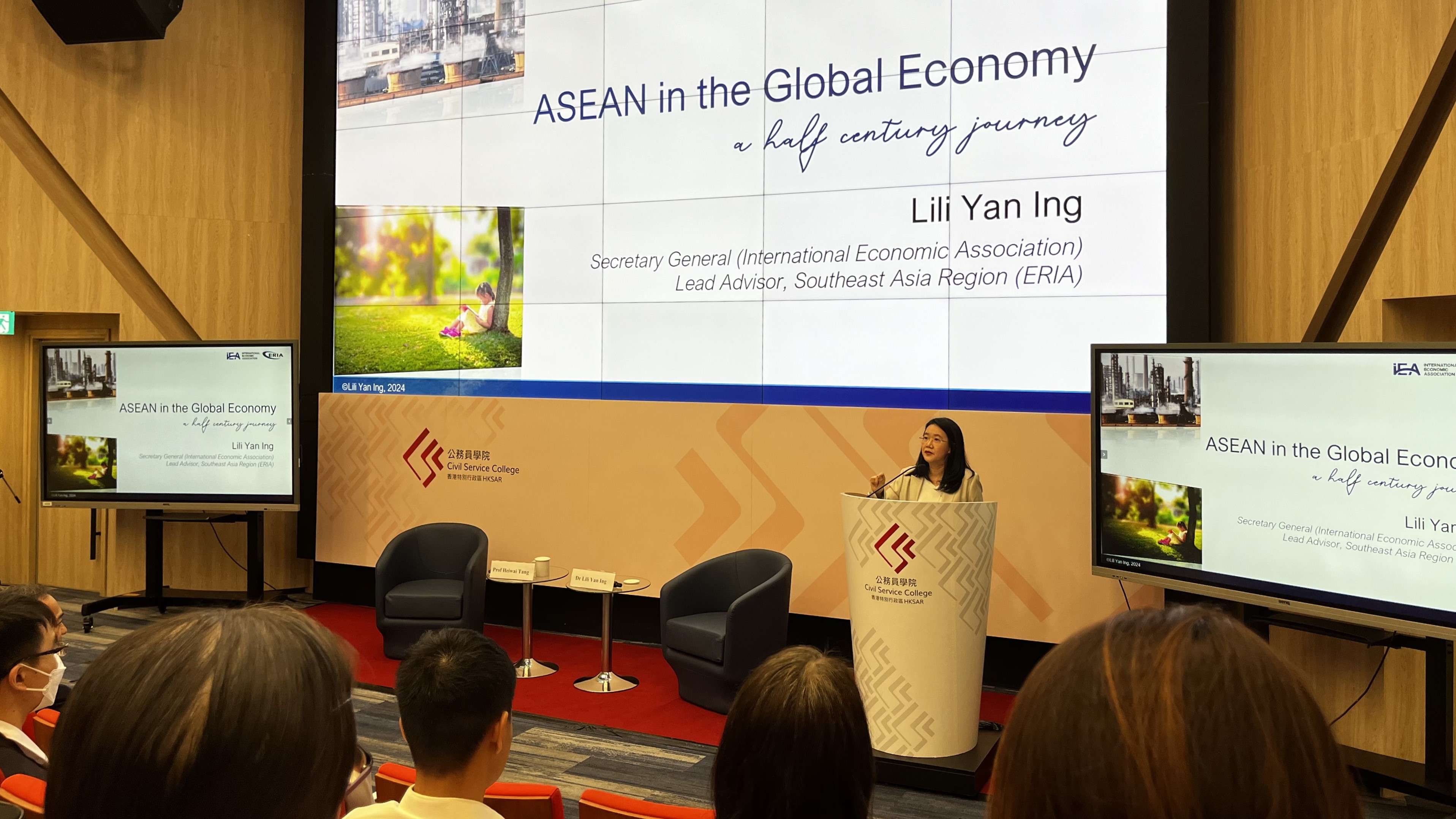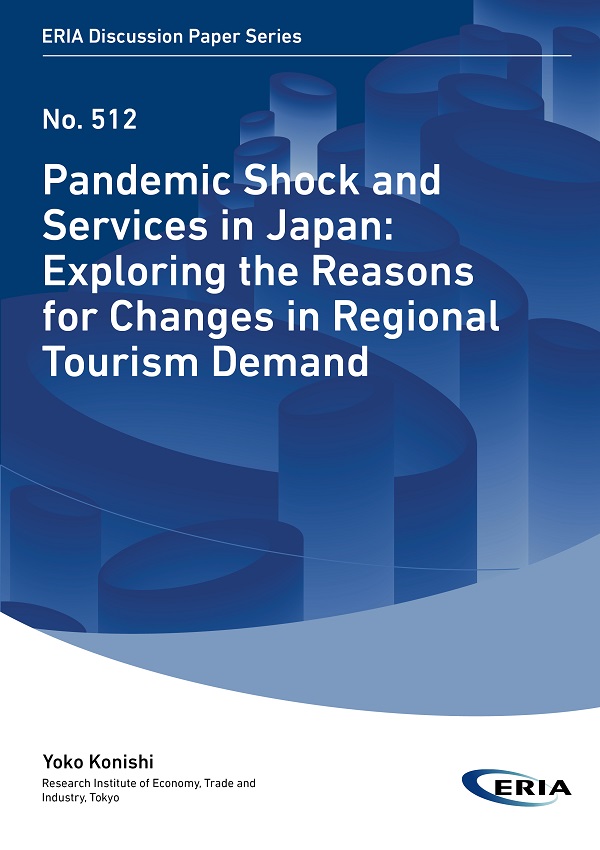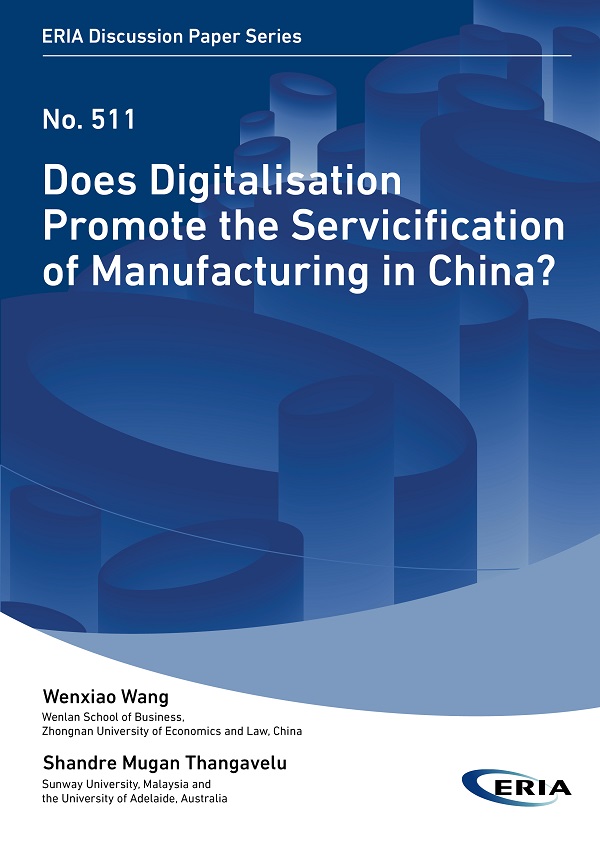Lessons from Hun Sen's Cambodia
Date:
8 August 2023Category:
OpinionsTopics:
-Share Article:
Print Article:
By Mr Kavi Chongkittavorn, Senior Communications Advisor: If international relations experts and scholars want to study a small state's diplomatic manoeuvres amid the ever-changing geopolitical landscape, they should make Cambodia their case study. With a new prime minister, Hun Manet, now in charge, the question remains: Will he be able to keep up with his father's multipolar politics?
Despite being one of the last countries to join ASEAN, Cambodia has been playing a big boy's game when it comes to geopolitics -- a game in which Hun Manet's predecessor, Hun Sen, excelled.
According to Chheang Vannarith, president of Asia Institute, Cambodia's foreign policy has been shaped by Hun Sen's worldview, which isn't confined or influenced by a great power (such as China or the United States) and/or the competition between said powers. He said that as a small, developing country, Cambodia, as well as other members of the Global South, would benefit most from omnidirectional diplomatic engagement and multipolar alignment.
Another scholar, Pou Sothirak, said over the past several decades, Cambodia has had to deal with domestic stability issues, which forced Hun Sen to take steps he needed to take to quell public dissatisfaction so as not to harm the competing interests of its allies.
Indeed, after the signing of the Paris Peace Agreements in 1991, which ended the war in Vietnam, Cambodia roller-coasted through a series of domestic and external unrest.
It was Hun Sen's pragmatism and versatility as a negotiator which allowed him to steer the country through a landscape filled with hostile nations which wanted to isolate and sanction Cambodia's government. Under his tenure, the nation switched alliances with the Great Powers several times in a bid to preserve national interests.
Thanks to the international community's commitment to rehabilitate the war-torn country after the Paris Peace Agreement was signed in 1993, Cambodia has been able to stand on its own two feet. After joining ASEAN in 1999, Phnom Penh was accepted as part of the World Trade Organization in 2004. It is now gradually becoming more integrated with the regional economy and the wider international community.
Among ASEAN leaders, Hun Sen is well-known as a straight talker -- he's known for calling a spade a spade during ASEAN-related meetings.
His decision to endorse the United Nations resolution condemning Russia's invasion of Ukraine not only surprised his ASEAN and Indochinese compatriots, but also Moscow, as the Soviet Union had extended generous development assistance to Cambodia in the past.
But those who knew Hun Sen would realise that all of his diplomatic decisions are rooted in survival and preservation of national interests. This is why it could be quite difficult to predict what he would do next.
Looking forward, however, Cambodia's foreign policy will continue to focus on countries which have the most impact on its economic and political security, namely China and Vietnam. Both countries have in the past and continue to influence Phnom Penh's diplomatic stance due to their geographical and ideological proximity. Beijing and Hanoi also view Phnom Penh in a similar manner -- as an important strategic and fraternal ally.
As such, both counties will have to constantly recalibrate their relations with Cambodia to ensure their bilateral relations do not go against their respective terms of engagement with Phnom Penh.
Under Hun Sen, Cambodia managed to balance its relations with China and Vietnam very well. His son hopes to continue this legacy and build new ties with the Western world, especially the United States and Europe, which have shunned Cambodia over its human rights records and governance.
Thailand will be Cambodia's third priority, after China and Vietnam, due to the longstanding cultural and historical relationship between the two countries. The past nine years could be considered a "golden period" of Thai-Cambodian relations due to the absence of border skirmishes and diplomatic disputes that happened quite a lot in the early 2000s. Furthermore, Hun Manet is known to have many friends in Thailand -- some of whom have a big influence on the political scene.
An issue that could harm his legacy as Cambodia's newest prime minister is the ongoing negotiations over oil and gas blocks which straddle the overlapping Thai-Cambodia maritime border in the Gulf of Thailand. If he could end the impasse in the negotiations surrounding the joint development of said blocks, Cambodia would receive a big boost in terms of energy production and overall economic development.
Cambodia's next priority will be ASEAN, as the bloc has been instrumental in Phnom Penh's integration with the regional and international community. For this, Hun Manet is well prepared -- Hun Sen had hinted at the last ASEAN summit in Labuan Bajo, Indonesia, that the summit would be his last.
Under Hun Sen, Cambodia has used the regional bloc to effectively shield the country from intimidation by more developed, hostile countries while promoting Cambodia's sovereignty. This trend will continue under Hun Manet, who is expected to boost his country's role in ASEAN, especially in terms of security and economic diplomacy.
Phnom Penh under Hun Sen also showed interest in many global issues relating to peace and security, as well as poverty and narcotic eradication cooperation. As a nation, it has benefited greatly from the ASEAN-led Regional Comprehensive Economic Cooperation and other free trade pacts as the government seeks to diversify its sources of trade and investments. Phnom Penh has also benefited from the Initiative for ASEAN Integration, which has helped in narrowing the development gap among ASEAN members prior to complete integration.
When it comes to security, Cambodia is clear that ASEAN should not be under the hegemonic influence of a single country. Hun Manet will continue his father's approach to hedging and realignment with great powers when the country's national interests are at stake.
Before touching on Cambodia's relationship with the West, its ties with Japan must be acknowledged. Prior to 2000, no other country provided large-scale development assistance to Cambodia. As such, Tokyo occupies a special place in Cambodia's diplomatic thinking. This is evident in the fact that Japan was the first country to be invited by Cambodia to inspect the Ream Naval Base and its supporting facilities before any others.
Hun Manet has also visited Japan and met with current Japanese leaders, including Prime Minister Fumio Kishida. He will join other ASEAN leaders at the special ASEAN-Japan summit to commemorate the 50th anniversary of ASEAN-Japan relations in early December in Tokyo.
It is pretty clear that Hun Manet's biggest challenge is managing Cambodia's relations with the West, especially the US and Western Europe. The West is critical of Hun Sen's way of doing things, but Hun Manet can pave his own way.
In fact, Washington should be Hun Manet's top priority.
The fact that he was educated in the West can certainly help improve his profile, but his future actions will speak louder. His upcoming visit to New York to attend the United Nations General Assembly in September will be a great opportunity to introduce himself to the global community and demonstrate Cambodia's commitment to global peace and stability and willingness to partake in pivotal global issues. While in New York, he is also scheduled to hold several bilateral meetings with Western UN members, which gives him more chance to introduce his mark.
Winning over Europe is not easy because of longstanding issues involving trade, labour and human rights. Brussels has even sanctioned Cambodia, withdrawing some trading privileges. Opening Cambodia up and instilling confidence in the country's civil and political arenas will take some time. With his father looming large in the background, any drastic action that could allow dissenting voices to echo abroad would not be forthcoming.
Hun Sen, like a good pilot, knows the best time to exit the cockpit. Hun Manet has taken the helm at the right moment, as his father is still active in the background to ensure that Cambodia will continue to stay on the radar for its hard-earned strategic autonomy.
This opinion piece was written by ERIA's Senior Communications Advisor, Mr Kavi Chongkittavorn, and has been published in Bangkok Post. Click here to subscribe to the monthly newsletter.
Disclaimer: The views expressed are purely those of the authors and may not in any circumstances be regarded as stating an official position of the Economic Research Institute for ASEAN and East Asia.
(Photo credit: Reuters)
